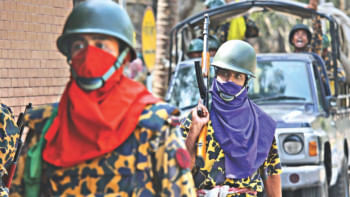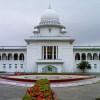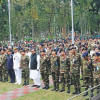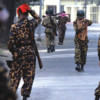BDR massacre must be reinvestigated

We are both perplexed by the government's decision not to form a committee right now to reinvestigate the 2009 killings at the Pilkhana headquarters of the erstwhile Bangladesh Rifles (BDR). The government's backtracking from the issue is devastating not only for the families who lost their loved ones during the February 25-26, 2009 massacre—in which 74 people, including 57 army officials, were killed—but also for the nation.
After Sheikh Hasina's fall, the issue of reinvestigating the carnage came up as many questions regarding the massacre remained unanswered during the Awami League regime. Most of the 152 people sentenced to death, and more than 300 people handed down imprisonment of various terms in relation to the BDR mutiny, were BDR jawans or soldiers. The real culprits and the mastermind were never identified. With a non-political government at the helm of the country, the aggrieved families hoped for a proper investigation, and the interim government initially responded positively.
Following a petition by two lawyers on October 20 seeking the Supreme Court's directive to the government to constitute a national independent committee to investigate the massacre, Home Adviser Lt Gen (retd) Jahangir Alam Chowdhury told the press on November 4 that the government would do so. Even on December 2, during the first hearing of the petition, the attorney general (AG) said that the process of forming the commission was underway and they would require two weeks to finalise it. However, during the second hearing on December 15, the AG told the court they could not form the commission at this moment because two criminal cases related to the BDR massacre are still pending—one with the Appellate Division and the other with a Dhaka court. It is not clear why the government needed more than a month to divulge this information.
The Pilkhana massacre, in which the country's top-tier army officials were killed, had a direct implication on our national security. So, it calls for rigorous investigation and a resolute mind to do so. While the interim government may not be able to complete the reinvestigation during its term, it should at least start it. As we look forward to the Supreme Court's order on the issue on January 5, we hope that the enormity of the massacre, its implication on national security, and mostly the suffering of the families of the victims will be taken into account to pave the way for justice.


 For all latest news, follow The Daily Star's Google News channel.
For all latest news, follow The Daily Star's Google News channel. 









Comments